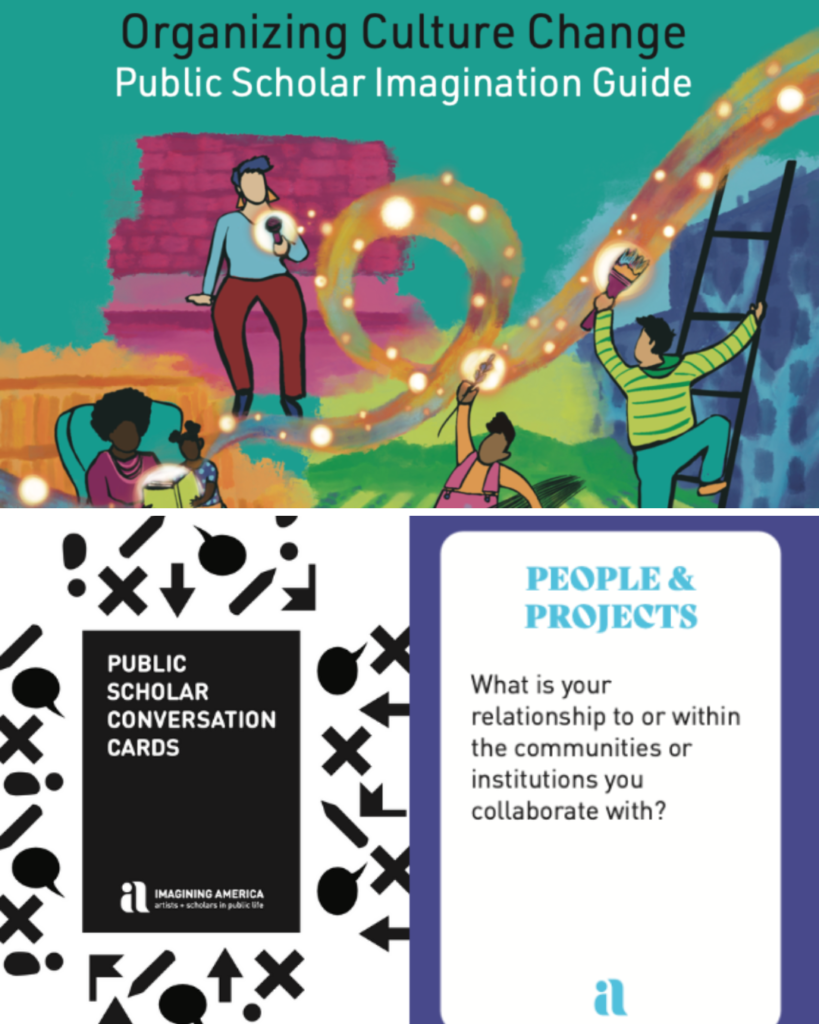‘a correct little sister’: lessons in publicness, lessons in quiet from Black queer life
monét cooper
“Also in the sense that I was stretching, reaching, trying to do justice to that realm of reality that we all live in but do not acknowledge, because the English language is for mercantile business and not for the interior life. The only time you see that realm rendered is in science fiction.”
Toni Cade Bambara, Deep Sightings and Rescue Missions, 1996, p. 235
The weeks that bookended school and the upcoming holiday felt tighter, violent, as if a paper’s edge was slicing itself up and down everyone’s spine, carving our backs with its crisp hum. It was fall. The leaves refused to hug the trees and rain arrived with a wind that moved as if it throated hell. Our sky had swept itself gray, the color of dead teeth and a long hate. While the school cafeteria always served something akin to a feast fit for someone whose stomach they were trying to offend, lunch meant a time for us to sit with friends, build lazy art from food discards, or get lost in a magazine in the library. But because Juice fought Jaylan about something someone else said about his mama in a group chat at 3:35 p.m. just before the last school break, Principal Dr. said it would be quiet lunch for everyone this last week. And if that wasn’t enough, Ms. DuBose, the only teacher to smile and laugh with us on the first day, had been out sick for the last two weeks. Just before the bell rang, I heard the sub say she didn’t have any more sub plans, which means I needed to bring my own books to read because we weren’t going to be doing anything anyway. My favorite class was a dub. When I closed my locker, pausing to look at folks, people’s faces was in a frown. I just knew something stupid was going to happen today.
My girlfriend Peaches stood in the middle of the hallway, acting like she was rummaging through her bookbag for the phone. Above her, Principal Dr. Franklin hovered with his walkie talkie buzzing in one hand and an open, empty hand stretching toward her. Peaches took out a napkin, looked up at him dead in his face and spit the gum she had spent all of 3rd period chewing directly into the napkin, catching the gum’s trajectory just short of his face.
Peaches and I began to laugh. We didn’t think it was funny. We were scared, but we wanted to sound disrespectful, as disrespectful as Principal Dr. was to us. From the minute we’d step foot in school, he was always looking for something: Quit wearing tight jeans! No belly buttons showing! Take off the bonnet, now! That! Belongs! At! Home! That dress is too short! Those earrings are too big! Why you holding hands? None of that here? What, you think you grown?
Today, Peaches was wearing a neon green sports bra underneath a transparent leopard pattern blouse with jeans and sneakers. I was wearing the same, but mine was hot pink with little ice cream cones that danced across the bust line. After school, I went to track practice and Peaches played basketball. And e in the hot Georgia sun staying cool and alive meant training in a sports bra and shorts. This was about survival and, my God, we were tired of the sun, the forever heat, Principal Dr.’s eyes and his slick mouth, our favorite teacher missing.
So, we opened ourselves and hollered from the place at the bottom of our throat, valley-deep in our lungs.
It sounded impolite. It sounded like a song.
As we laughed, Principal Dr. began to wheeze, his head jerking in a weird rhythm as his nose began to bleed. We noticed the blood fall as he coughed with a look of embarrassment spreading across his deep honey-brown puckered face as if we caught him wearing one of our bonnets. I thought embarrassment was an interesting emotion to have when the blood inside of your body is coming out, but adults are always silly when it comes to people younger than them. The story on their faces is a map of the day’s frustrations: the person who cut you off at the green light; the barista who got your coffee order wrong and when you brought it to his attention, he attempted to make you pay to correct the order; the colleague who after six months, still doesn’t pronounce your name correctly; the museum docent who bumped into you exclaiming she didn’t see you, just didn’t see you looking at the Obama portraits; finding out that the colleague whose work you’re often correcting is paid $10k more than you; the dentist saying that their mistake on your right molar, which has now caused an infection, is somehow your fault. They don’t tell us these things, but we overhear them talk on the phone, speak in hushed voices to each other, heave a sigh on the counter before washing the chicken we’ll eat for dinner. We say nothing to our adults. We just watch and listen.
To Principal Dr. we said nothing. He flipped on his walkie talkie and told us to go to his office. As the crackle of voices and radio static rose, he watched us under a white napkin, the cheap kind, quickly reddening as he held it to his nose.
Peaches and I slow-walked away, giggling before quieting ourselves. I rubbed my chest. School lunch was fussing my belly. “Did you see that?” Peaches frowned. This wasn’t the first time our laughter had brought blood, but this was a lot more than we’d ever seen. I nodded yes, opening my mouth to whisper that perhaps we should have been quiet this time. Maybe we should have said nothing.
“HURRY, ladies!!!” His muffled voice called to us from a few steps away.
Then a groan. Then a thud.
Peaches and I turned. She plunged her hand into her bookbag and took out the phone and called 911, while I ran to Principal Dr. and began to check his breathing like I learned in lifeguard training.
Look. Listen. Touch.
Still breathing, he was knocked out and I wasn’t sorry, either. “We need to show the video to our parents,” I thought. But it was as if Peaches already knew what I was thinking. “Mama? Come to school quick. Nia and I are in trouble.”
This past summer I kept time in Toni Cade Bambara’s archive where I watched and rewatched her 1988 address to an audience gathered to discuss, scheme, and co-create Black independent film. She coaches me from the archive, “We have stories to tell. We have things to express, things to explore, experiences to document, interpret, to validate and to claim. And after all a people entrapped in another people’s fiction is an endangered people…If we did not make claim on our own reality, our own words, and definitions, our own stories, our own prospects, our own agenda, we would be stupid.”
Visiting Bambara’s work also meant visiting home. I’m from Decatur, Georgia, one of Atlanta’s cousins, and where I get to witness my people accept and refuse the fictions offered to them, wrestling with relationships between humans and other parts of the natural world, relishing the beauty of life’s smallness, and paying attention to the come-celebrate-with-me moments. When my Uncle Josh, my dad’s youngest sibling and a favorite elder, passed three days ago, we keened our love, our grief aloud to each other, navigating all of the living mourning our dead brings. When Bambara notes our claim to reality, one in which we as Black storytellers get to explore the richness of feeling, the frustrations and loving of everyday life, I can’t help but consider that maybe “having things to express” in public scholarship is not simply being available to the public, but the desire to be in conversation with the folks and accountable to the folks, which means we share our work and ourselves, we listen and speak, we live in solidarity with the folks. And, maybe this is because we as storytellers understand the inevitability of revision, the recognition that this here is a draft and there will be many more after it. But even in revision, we don’t always see our own ineptness. With the folks, I find community as a way to release myself from the traps of knowing and ego. Perhaps community is a way we undiscipline ourselves, ruin ourselves for what the academy has already captured us inside.
Reaching toward Bambara’s provocation, I question myself: What are the stories I don’t tell? What are the ones I don’t feel prepared to create? The ones I think I may make so deep a mistake, I don’t try anyway? How can the writing allow me to access my own pleasure as much as inviting others to access their own? I mean, I’m just trying to be “a correct little sister”, what Bambara (1980) told actor and playwright Ossie Davis she’s raising her daughter Karma to be. In this moment, her words tell me to be kind and brave and to create from a place beyond fear, to create from pleasure, from the promise of freeing myself.
I take pleasure in exploring Black interior life and how English, a language of transaction, erasure, and capture can be made to break itself, to fail, and in doing so do something different than what it has been designed to do. I feel the necessity of what Toni Morrison called “word-work” in her 1993 Nobel Laureate speech in which an old woman tells taunting children, “It is in your hands…The future of language is yours.” The language of policy, law, and government promise has failed everyone over and over again, but I am most interested in how Black folks have worked words written on the page, frolicking in the ear, and whispered inside of ourselves to aid in building otherwise. Languaging care within sites of uncare is word-work that engages what language of the interior might do. In studying how Black freedom operates through the technologies of Black inner life in quare youth, I observe, document, and celebrate what Elizabeth Alexander (2004) and Kevin Quashie (2012) call the Black interior, a space inside of the Black self that “gestures away from the caricatures of racial subjectivity [toward] the inner reservoir of thoughts, feelings, desires, fears, ambitions that shape a human self…a space of wild selfullness…the edges of all the humanness one has,” (Quashie, p. 21). I am interested in writing as the practice of freedom (my own as much as others) and how the folks have used their literacies of writing, reading, creating, imagining to get free. It is a personal curiosity—OK, yes, I’m nosey—as much as one of lineage and ancestry. I am the growing seed of people who have survived and so much of that survival has been in how we language the stories of how we exist—together.
The folks I research with, write about, and think with are quare youth. Quare references Black life that refuses cis-heteronormativity and how one’s performance of that life is read by that self and by others. At the intersection of anti-CRT and anti-LGBTQ policies, Quare girls’ narratives of desire are often made illegible in the violence that erases the fact that “they do desire” (Nash, 2016). This erasure is a violence in and of itself because it messes with our memory and the possibility that remembering desire holds. The everyday spectacular of quare girls in schools remains obscured underneath a film of antiblack violence as an everyday matter they experience in and outside of schools. Heavily documented in research and news media alike, the realities of antiblack violence often erases who Black girls be. There is a way academia measures and calculates with certainty even as it questions. Creating knowledge through academic research is important work. But the most consistent knowledge creation I’ve known has been through writing poetry, stories of my own and others. It’s happened in the warm circle of my family’s kitchen table, sitting between my grandma’s legs while she pressed my hair, while I snap peas from her and granddaddy Cooper’s farm across the street. It’s come hearing my students story themselves, writing plays about border crossings, poems about who they are and how they fix their worlds to be, and challenging my own perceptions of rightness. These forms portal new imaginaries and freedom dreams that offer new ways to play, interpret and speak a knowledge that sustains the living work, the hope for what can be in and through imagination as an individual and communal practice.
References
Alexander, E. (2004). The black interior: Essays. Graywolf Press.
Bambara, T.C. (2 August 1980). With Ossie and Ruby” Emmalyn II, 2nd Draft [Script] (Box 5), Toni
Cade Bambara Collection, Spelman College Archives, Atlanta, Georgia, United States.
Bambara, T.C. (6 October 1988). Black Studies, Film Lecture [Video] (Box 11, Audiotape Inventory
7), Toni Cade Bambara Collection, Spelman College Archives, Atlanta, Georgia, United
States.
Bambara, T. C. (1999). Deep sightings & rescue missions: Fiction, essays, and conversations.
Vintage.
Smith, M. B. (1989, August 12). Interview by C. A. Kiesler [Tape recording]. President’s Oral History
Project, American Psychological Association, APA Archives, Washington, DC, United
States.
Morrison, T. (1993, Dec 7). Toni Morrison Nobel Lecture. The Nobel Prize.
https://www.nobelprize.org/prizes/literature/1993/morrison/lecture/
Nash, J.C. (2017). Pleasurable Blackness. In: L. Allen & M. Rasmussen (Eds.) The Palgrave
handbook of sexuality education. Palgrave Macmillan, London.
Quashie, K. (2012). The sovereignty of quiet: Beyond resistance in Black culture. Rutgers University Press



monét. Just, wow. What a treasure you have gifted us here. Aside from the poetic entices of such beautiful writing, you have left me with a great deal to contend. I am especially drawn to your questions of “What are the stories I don’t tell? What are the ones I don’t feel prepared to create?” and am asking myself the same. I am considering the roles of both appropriated and new language(s) to speak back to such important considerations, as well as what such “work-work” might suggest for our capacities + depths to truly be in a shared conversation with the “public”. Thank you for reminding us that “accessibility” nor “availability” can be used as sheer measurements of the depths of communal conversations and relationships. As you explain, there is intimate, mutual storying required at the crux of language and experience. I look forward to continuing to engage in the unfoldings of this beautiful work. Thank you.
Beautiful! The evocative imagery of your storytelling transport me into that suspended space-time continuum of memory. You have generously offered up a rendering of your work that captivates the imagination and demonstrates your dedication to inviting readers to dig into liberatory dialogue. More than that, your writing is unapologetic in protecting, provoking, and perpetuating stories of the soul – those of community, ancestry, and self that merit breath.
In your process of inquiry, as you question how and what stories you tell, I am curious about your process of revisiting those stories most told. How might interrogating the most familiar stories make different aspects of identity, pleasure, or meaning more accessible? I deeply appreciate your willingness (or need) to reach through the portal and share from within. Gratitude!